The Washington Examiner‘s editors and reporters have identified the intellectuals, policymakers, think tank leaders, campaign operatives, candidates, pols, pundits, wonks and others who are pushing our thinking and testing the limits of political possibility.
Some names on this list are already familiar to many; others will be virtual unknowns. This is as it should be. We set out to find people who are not yet fully in plain view above the horizon, which is why you won’t find party leaders or presidential hopefuls on this list. Instead, we sought out talented iconoclasts whose ideas on politics and policy are likely to be heard and should be listened to — but who may not earn the attention of the national media on a regular basis.
From a 26-year-old MIT graduate student challenging Thomas Piketty to a Navy SEAL making a run for the Missouri governor’s mansion to a long-time Cato Institute leader launching a brand-new think tank, we’ve identified individuals whose projects and passions run the gamut. Remember these names — and look for them to shape our politics in the years to come.
1. Charles Blahous
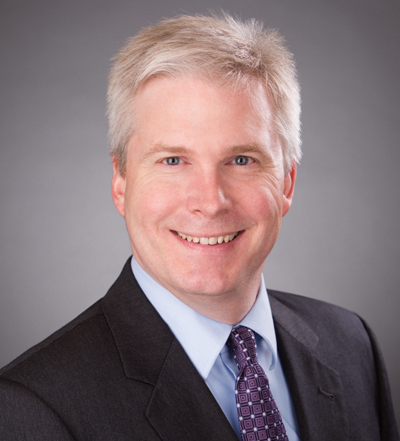
Blahous is a public trustee for the Social Security and Medicare programs, as well as a senior research fellow for the Mercatus Center at George Mason University. Policymakers regularly turn to him for his analysis on our entitlement programs, and he will gain prominence over the next year as these debates heat up. He’s well respected as a neutral referee when it comes to the future of entitlements, which will be all the more needed as the Disability Insurance program comes closer to running out of money and the debates surrounding it grow more frequent and intense. Expect Blahous’ well reasoned voice to rise above those of pundits who are in denial of the crisis facing Social Security.
2. Carlos Curbelo
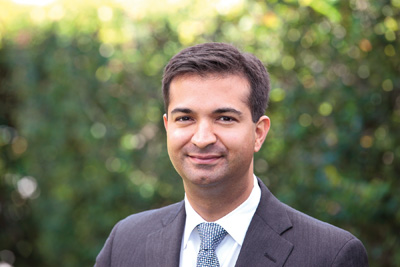
Curbelo is a freshman GOP representative from Florida and delivered the Spanish response to the State of the Union. Already a favorite of party leaders, Curbelo has distinguished himself as an unapologetically moderate GOP voice on immigration. His policies reflect his background and his constituents: He’s the son of Cuban exiles, and he represents a district brimming with immigrants. Curbelo unseated a Democratic incumbent by four percent in 2014, and though his position on immigration may put him at odds with the party’s rank-and-file, Curbelo’s growing profile may burnish the kind of big-tent Republicanism the party hopes to showcase going into an election year.
3. Rob Engstrom
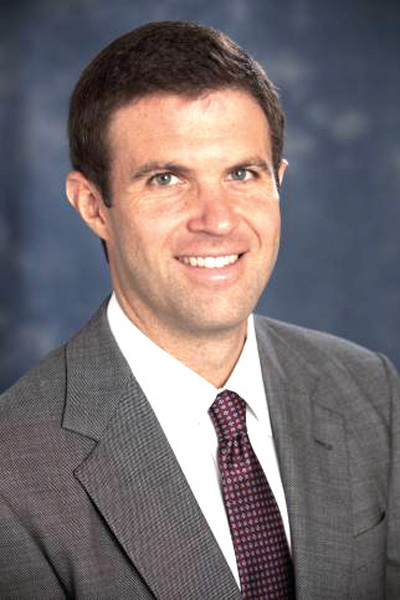
Along with the Chamber of Commerce’s senior political strategist Scott Reed, Rob Engstrom is credited with engineering a strong show of political force from the Chamber in 2014. Though he’s now its senior vice president and national political director, Engstrom cut his teeth as a state-level operative for the Chamber and before that as director of the Division of Political Education at the RNC. With strong ties to Jeb Bush — he took a one-month leave from the Chamber to help jump-start Bush’s political committee, Right To Rise — expect this relentless Georgia native to make waves in the year ahead.
4. Dan Epstein

Dan Epstein’s organization, Cause of Action, is a leader in the world of government transparency and accountability. It advocates for FOIA reform laws, files lawsuits and conducts its own research and investigations. Called the “most active nonprofit you’ve never heard of,” Cause of Action has investigated everything from Hillary Clinton’s violations of the Federal Records Act, to possible fraud in a visa-for-cash program administered by the DHS, to overbilling by the Chicago Transit Authority. Epstein is no newcomer to the accountability game: Before his work at Cause of Action, he served on the Counsel for Oversight and Investigations at the House Committee on Oversight and Government Reform. Expect Epstein and Cause of Action to stay in the headlines as they work to hold the powerful accountable.
5. Deborah Gist

Tulsa’s newly-installed schools chief was the school board’s unanimous pick. But that didn’t stop teachers from walking out upon news of her selection. That’s because Gist’s reputation precedes her: named one of Time magazine’s most influential people of 2010, her six-year tenure as Rhode Island education commissioner brought a wave of reforms to the state’s schools, including revised teacher evaluations, ramped-up testing, and an end to the state cap on charter schools. All of this drew the ire of the state’s teachers union, and while Gist took pains not to call out the unions directly, her actions as education commissioner made her a target. Now, this Tulsa native is taking her talents back to her hometown, and though she’s new to the superintendent job, this former teacher and statewide policy-maker is sure to bring her reformist instincts to the new post.
6. Garret Graves
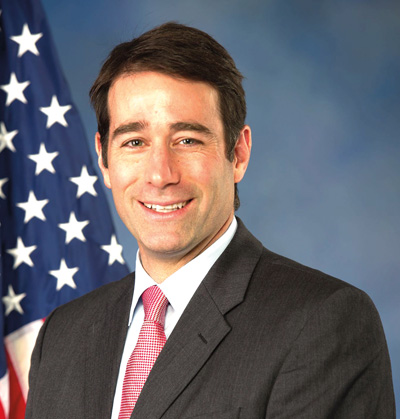
Elected in late 2014, Graves went from serving as a longtime congressional aide, to running the Louisiana Coastal Protection and Restoration Authority, to winning a run-off to secure his own congressional seat. A Baton Rouge native, Graves breaks with many of his Republican colleagues on climate issues — he’s called denial of sea rise in Louisiana “idiotic” — but his prescriptions about how to approach global warming avoid the usual fare of tighter regulatory restrictions and expensive engineering projects. For Graves, finding free-market and incentive-based solutions to environmental problems has helped win over some skeptics, and earned him a seat in Congress.
7. Eric Greitens

A Rhodes Scholar, Navy SEAL, best-selling author and the founder of veteran’s charity The Mission Continues, Greitens is a Republican candidate for governor of Missouri. While he’s new to the political world of the Show-Me State, he’s already emerged as a powerful voice and equally powerful fundraiser, whose military and academic accomplishments are as impressive as they come. The race for the Missouri governorship has been marked by tragedy — a top Republican candidate, state auditor Tom Schweich, committed suicide in late February — but Schweich’s death held up a mirror to the state’s bitter politics. Missouri political circles are in a period of searching self-reflection, in which a fresh-faced candidacy like Greitens’s might be welcome.
8. Vincent Harris

“Can Rand Paul troll his way to the White House?” the Washington Post mused. It was referring to Sen. Rand Paul’s aggressive, needling use of social media against his rivals. It’s a strategy that is sure to serve as a centerpiece of his 2016 campaign, and the architect behind those jabs is none other than Vincent Harris, a young digital guru who Paul poached from Sen. Ted Cruz. What does Harris have in store for the wide-open GOP primaries? No one is quite sure yet, but Harris, whom Bloomberg dubbed “The Man Who Invented the Republican Internet,” is a figure to watch as the race heats up.
9. Thomas Hoenig
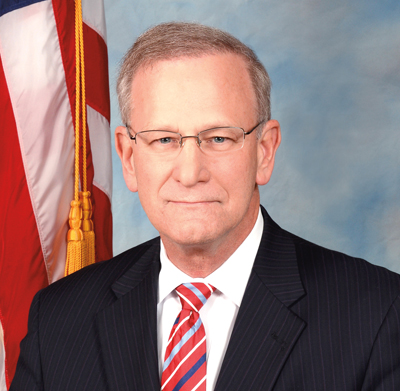
Some people posit the idea that the outspoken 68-year-old FDIC Vice Chairman Thomas Hoenig may actually be running the place. But even if that exaggerates his role, Hoenig’s influence cannot be ignored. He has emerged as a forceful critic of big banks, and he’s the lone senior regulator to call explicitly for breaking them up. A reformer, he helped to push through stricter capital rules and strengthened language on how the government would deal with a failing bank. The Iowa State grad and Vietnam veteran draws on deep experience as the head of the Kansas City Fed, where he cast vote after vote against Ben Bernanke’s monetary policy, which he argued was dangerously inflationary. It made him a lonely voice of dissent, but a hero to congressional Republicans.
10. Garrett Johnson, Aaron Ginn, Chris Abrams

This trio is behind Lincoln Labs, whose mission, “building the largest community of individuals who desire to advance liberty in the public square with the use of technology,” is as ambitious as it comes. In the aftermath of a 2012 report that illustrated the shocking technological gap between Republicans and Democrats, Johnson, Ginn and Abrams joined campaigns and tried to do their part, but met with stiff resistance along the way. Lincoln Labs grew out of that experience and their shared frustration. And what began as a series of happy hours and meet-ups has attracted national attention. The organization’s Reboot conference has drawn some of the party’s leading lights as speakers, including presidential candidate Sen. Rand Paul. Johnson, Ginn and Abrams are deeply embedded in the Valley’s entrepreneurial culture, and they’re deploying that street cred to bring the region’s free marketeers and right-leaning entrepreneurs out of the political woodwork.
11. Simon Johnson
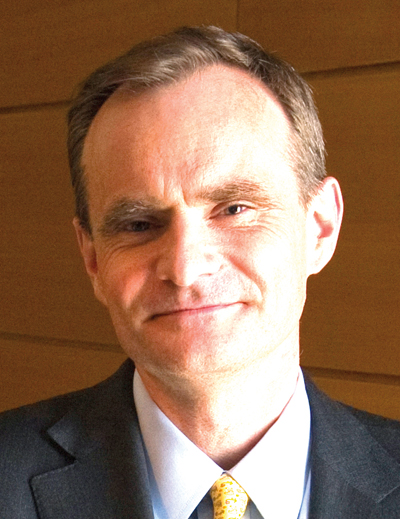
Bank lobbyists simply refer to him as “Simon,” but not because of a friendly rapport they’ve built with the MIT professor. Rather, it’s because of his singular role in the debate over financial regulations, and his strongly-held view that the biggest banks ought to be broken up. He is the best-selling author, along with James Kwak, of 13 Bankers: The Wall Street Takeover and the Next Financial Meltdown, a chronicle of the banking sector’s influence in government. But the real source of his public impact is his award-winning blog, BaselineScenario.com, which tracks the minutiae of financial regulatory reform, and exploded to over 100,000 page views barely a month after launch.
12. Gregg Keller
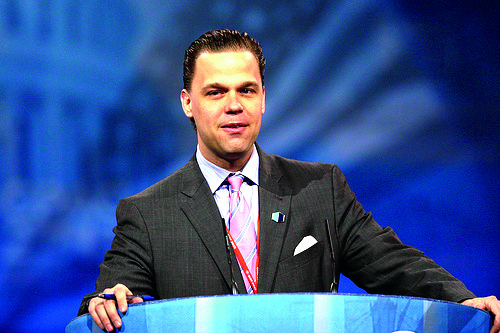
A former executive director of both the American Conservative Union and the Faith and Freedom Coalition, Keller is now a senior adviser to Scott Walker and is steering the governor’s conservative outreach. Keller orchestrated Walker’s well-received appearance at CPAC, where the candidate placed second in the straw poll. He is a Romney campaign alum, having served as national coalitions director in 2008. With his coalition-building and campaign bona fides, watch for Keller to help Walker navigate the shoals of national conservative politics.
13. Yuval Levin

Here’s Levin in his own words: “In many areas of policy, we’re trying to move Republicans from merely saying no to the Left, or worse yet saying ‘yes, but a little less,’ to showing what the Right would do instead. Offering a clear, distinct direction is likely to be a more powerful and effective strategy than just acting as a break on someone else’s agenda.” He’s a must-read voice in conservative circles, and if the Republicans seek a bold new direction and the language to sell it in the campaign ahead, then the unselfconsciously “frumpy” Levin and his journal National Affairs are likely to play a leading role. Watch for the candidates’ policy staffs and perhaps the candidates themselves to borrow a line, a thought or a policy idea from this prolific public intellectual.
14. Ludmya Bourdeau “Mia” Love
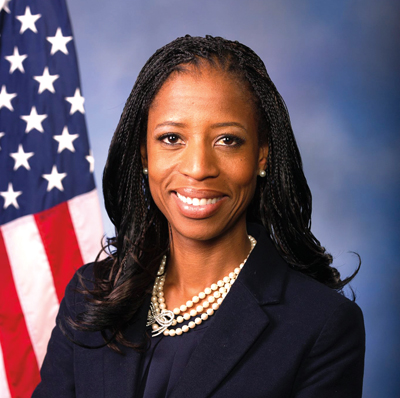
Rep. Love’s is the story of firsts: The first Haitian-American elected to Congress, the first African-American female Republican in Congress, and the first African-American to be elected to Congress from Utah. She has the kind of fabled personal story that would be the envy of any candidate. Her parents, Haitian immigrants, spoke not a word of English when they came to the United States. She began her political career on the city council of Saratoga Springs, before rising to mayor. From there it was on to the House of Representatives, and with her hardscrabble background and repeat political success, that may not be her final stop.
15. Andrew Lundeen

Lundeen serves as the director of Federal Projects for the Tax Foundation. As presidential candidates announce their visions for tax reform, expect the media to turn to the Tax Foundation for detailed, unbiased analysis. Lundeen’s work can be cited in any tax debate, whether discussing the amount paid by the rich or how much a given tax plan would boost economic growth. He is a well-spoken advocate for dynamic scoring, which includes economic effects when analyzing how much revenue tax reform will create. With the campaign underway, and the issue of taxes paid by the wealthiest sure to come up, Lundeen’s analysis and the Tax Foundation’s work will take center stage in the year ahead.
16. Alex Lundry

If the Harvard Business Review is right, and “data scientist” is the “sexiest job of the 21st century,” that might just make Alex Lundry the sexiest man in Republican politics. The co-founder of Deep Root Analytics and Chief Data Scientist at TargetPoint Consulting, Lundry worked as the Director of Data Science for Mitt Romney’s campaign and has a finely-honed, data-savvy sense of the American voter. His firm, Deep Root Analytics, is looking to change the way television ad buys are done. The Swarthmore and Georgetown grad, who once taught high school government and philosophy, has emerged as one of the party’s big voices on big data — a powerful position as we get deeper into campaign season.
17. Martha McSally
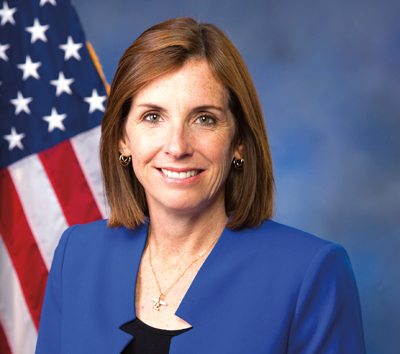
The narrow victor in a toss-up district, Republican McSally is well-respected among party leaders and is thought to be on track to become the first GOP woman speaker. A former Air Force Colonel and the first American woman to fly into combat, she lost two races for Congress before eking out a 167-vote victory on her third attempt. The Air Force Academy and Harvard grad first came to prominence when she sued the Defense Department for requiring women to wear the abaya when traveling off-base, and she continues to be a voice for women’s rights in Saudi Arabia.
18. Tim Miller
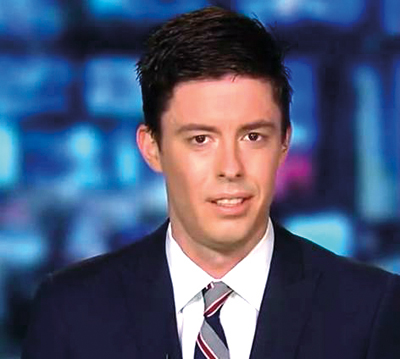
After helping to establish the successful GOP opposition-research outfit America Rising, Miller is taking his talents to Jeb Bush’s communications operation. A presidential campaign veteran — he worked on the McCain, Huntsman and Romney efforts — Miller is an attack dog with digital media experience and social media savvy. His firm was behind several of the 2014 cycle’s widely-circulated gifs and memes. Bush generated ink when he persuaded the sought-after Miller to join his effort, but the shareable, digital headlines Miller creates on the candidate’s behalf will be the ones to watch in the year ahead.
19. Ajit Pai

“A solution that won’t work to a problem that doesn’t exist.” That’s FCC Commissioner Ajit Pai’s pithy takedown of the FCC’s rules on net neutrality. One of two votes against net neutrality rules on the FCC, Pai has deployed such nuggets with regularity, writing columns, taking to the airwaves and using social media to oppose Title II reclassification and what he sees as the FCC’s needlessly heavy regulatory hand. He’s criticized the process, too: He came out strongly against the decision to draft the new rules behind closed doors. While his vote ultimately placed him in the minority, his thoughtful, public opposition earned him the attention of sympathetic conservatives. The son of Indian immigrants, with degrees from Harvard and University of Chicago, Pai can be expected to continue his powerful dissent in the year to come.
20. Matthew Rognlie

What began as the blog post heard ’round the economics world has vaulted this 26-year-old MIT graduate student into academic stardom. The core insight of Rognlie’s 459-word critique of Thomas Pikkety’s Capital in the Twenty-First Century is that housing may play a larger role in the analysis of inequality than Pikkety acknowledges. This challenged the book’s central remedy, the wealth tax. Though he may not have debunked the entire book in the way his most ardent fans suggested, Rognlie’s research did introduce an important element to the discussion: namely, that retrograde housing policy has held back the poor. Rognlie’s work is a useful addition to the mix, and, given his tender years, his best work is surely ahead of him.
21. Avik Roy
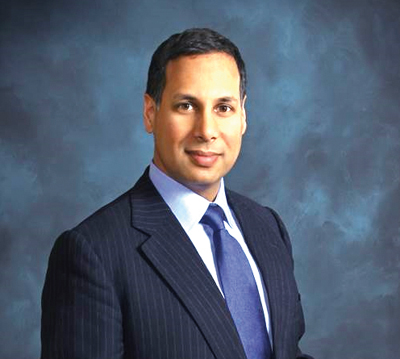
A senior fellow at the Manhattan Institute, Roy may be best known as the author of the Forbes blog The Apothecary, which he’s used to maximum effect in recent years to oppose Obamacare. With a medical degree from Yale, Roy brings special credibility to the healthcare policy arena, and his writings carry the weight of a physician’s expertise. But he’s no slouch as a wonk either: He’s released his own healthcare plan and served as a health policy adviser to Mitt Romney’s campaign. He’s almost certainly going to influence the 2016 GOP field on this issue, and if a Republican does capture the White House next year, few would be surprised if Roy ends up with a leading role in the Department of Health & Human Services.
22. Ben Sasse

Nebraska’s junior senator has four degrees and a university presidency under his belt. And he’s only 43. Winning 92 of Nebraska’s 93 counties in his Senate run, Sasse has been called a “virtuoso pol,” and his longtime Nebraska roots burnish his educational and business credentials. He’s emerged as a strong Obamacare opponent, and his HHS experiences provide a deep well of policy experience in that area.
23. Alex Skatell and Phil Musser

The young co-founders of Media Group of America, which owns the wildly successful IJReview, this pair seems to have unlocked a code for GOP messaging success in the social media age. By some estimates, IJR reaches over 25 million people per month. Skatell and Musser’s work earned the attention of Jeb Bush, who reportedly wanted to sign MGA’s digital agency IMGE to his campaign, but they turned him down. The traffic-and-revenue-generating IJReview is likely to play an outsized role in the run-up to 2016, giving this partnership a bigger platform than many, if not most, candidates’ teams.
24. Elise Stefanik

It’s been all too easy for the media to gush about Rep. Elise Stefanik. She’s a 30-year-old female GOPer, the youngest woman ever elected to Congress. But here’s what the profiles often miss: She’s worked for the Domestic Policy Council in the Bush White House, served as the former Director of Communications for the Foreign Policy Initiative, and directed debate prep for Rep. Paul Ryan. Which is all to say that the sunny, optimistic face of the “new GOP” also appears to have serious policy chops and a knack for the by-ways of Washington. Her colleagues seem to appreciate this and elected her to serve as the freshman rep to the Policy Committee. Stefanik may be generating press for her youth and fresh-faced appeal, but it’s in the brass tacks of policy-making where she may end up making the biggest impact.
25. Scott Sumner

A heterodox thinker, Sumner is perhaps best known for his economics blog, The Money Illusion, which has popularized the notion of a “nominal GDP.” A professor at Bentley University, Sumner has emerged as the de facto head of market monetarism, and his Sumner Critique echoes the famous Lucas Critique: “In any rational expectations model, government policymakers have no basis for confidence in a policy succeeding, unless it is expected to succeed (by the markets).” Considered one of the most influential economics bloggers in the world, Sumner’s work is, by his own admission, an “off-center” addition to the monetary policy debate.
26. Grant Starrett

A 27-year-old challenger to scandal-scarred Rep. Scott DesJarlais, Starrett has earned the praise of several high-profile pundits, including Erick Erickson and Ramesh Ponnuru. Starrett cut his teeth on both Romney campaigns and ran Students for Mitt in the 2008 effort. He’s the former president of Tennesseans for Judicial Accountability, a Republican group that pushed for a more conservative state Supreme Court through judicial elections, and his youth belies rich political experience that has managed to land him some heavyweight support. Others may yet to enter the primary, but Starrett’s a candidate to watch.
27. Jerry Taylor
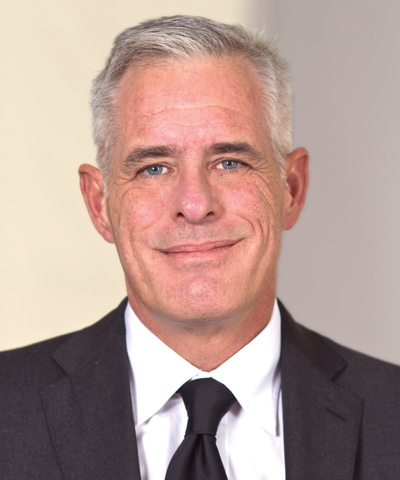
Taylor is the president of the newly-founded Niskanen Center, named for Bill Niskanen, the long-time chairman of the Cato Institute. Quoting Thomas Edison in its founding document — “Vision without execution is hallucination” — the Niskanen center is an avowedly libertarian think tank which embraces the kind of gradual change and compromise that its counterparts might find distasteful. That doesn’t seem to bother the Niskanen team. “To the extent that it is articulated, the current strategy pursued by libertarian organizations is premised on the belief that putting external political pressure on Washington will eventually produce policy change … yet electing friendly politicians has accomplished little,” they write. With their goal of securing libertarian-friendly laws and regulations, “concrete deliverables,” and at least one major presidential candidate wearing his libertarianism as a badge of pride, Jerry Taylor and the Niskanen Center are sure to have an impact.
28. Matthew Whitaker
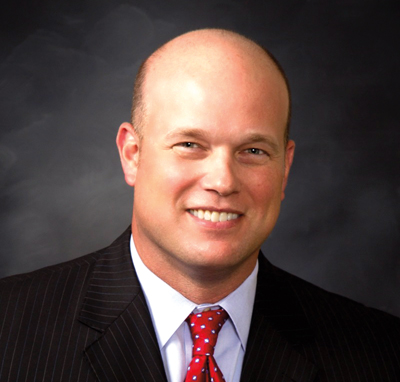
Whitaker’s Foundation for Accountability and Civic Trust (FACT) has only recently come into existence, but it’s already earned some powerful enemies. FACT challenged Harry Reid for illegal use of Senate resources for his campaign and filed an FEC complaint against Hillary Clinton for “conducting campaign activities before officially announcing her candidacy.” Whitaker, a former U.S. Attorney for the Southern District of Iowa, is backed by what he has called “some freedom-loving Americans” who have entrusted him with $1 million. As the election begins, Whitaker and FACT are sure to act as powerful checks on Democratic candidates.
